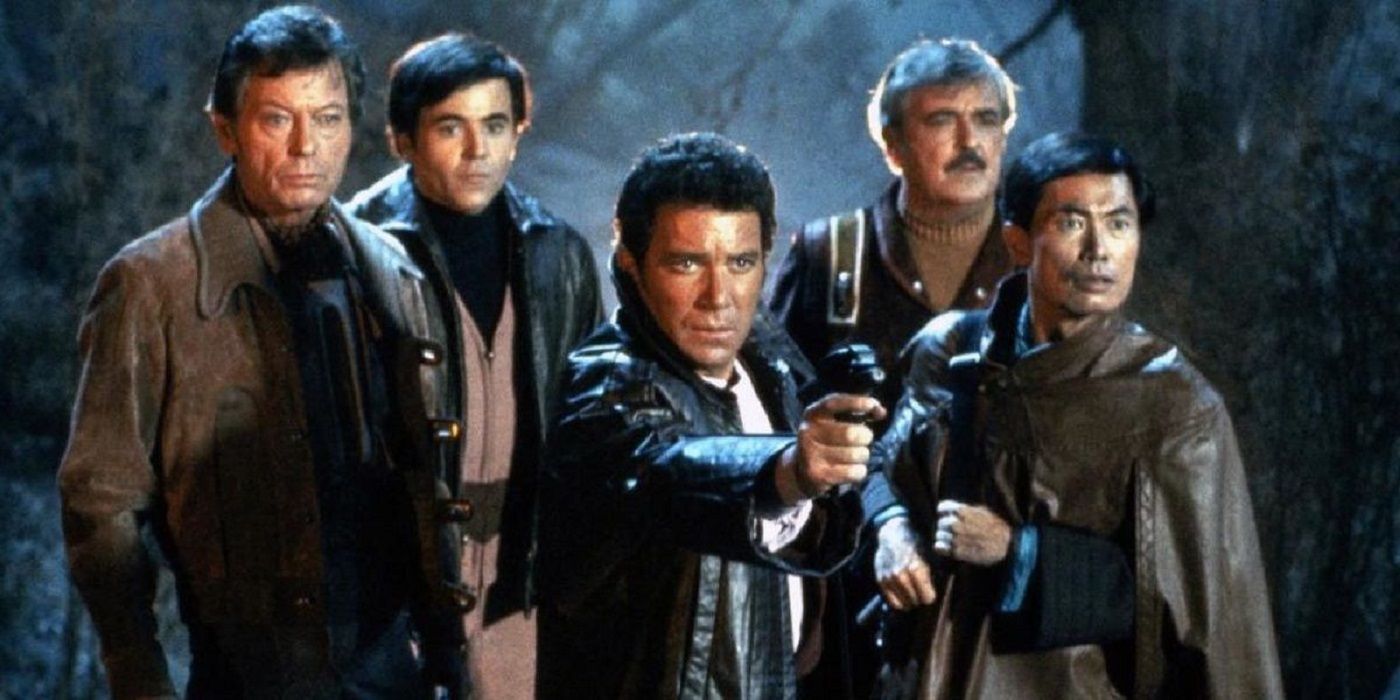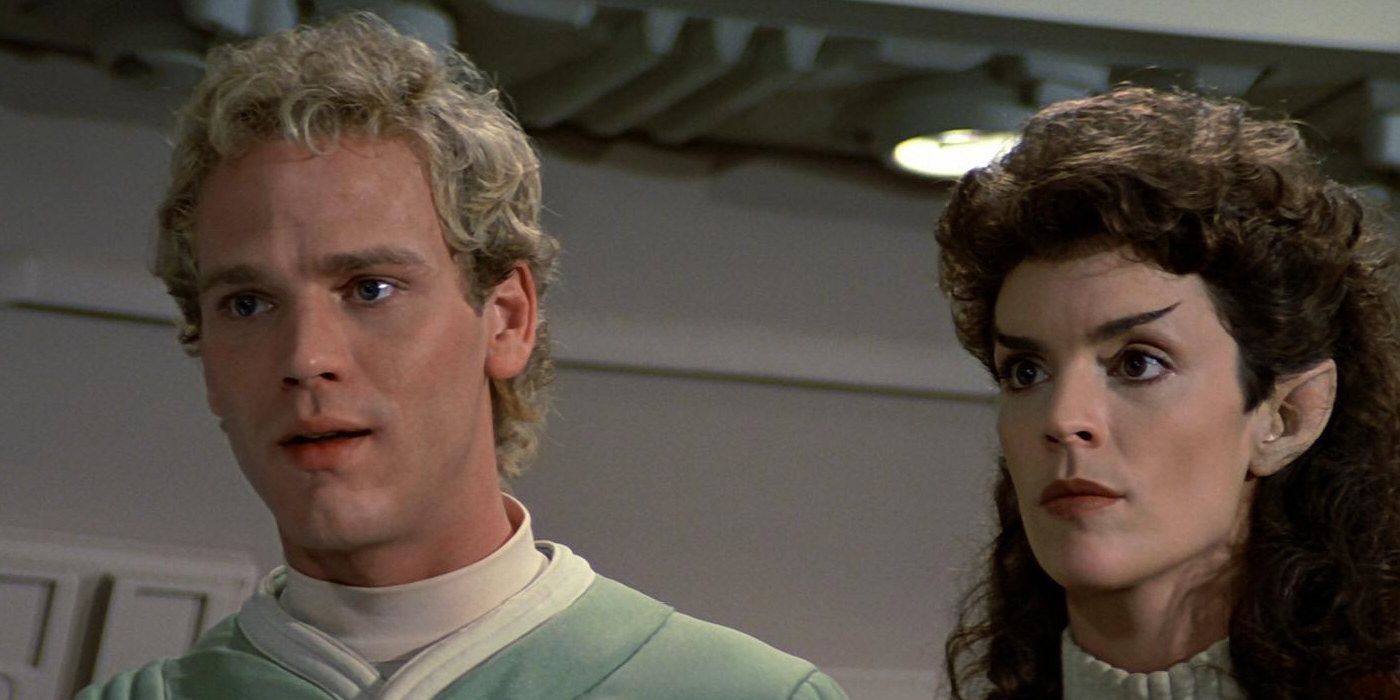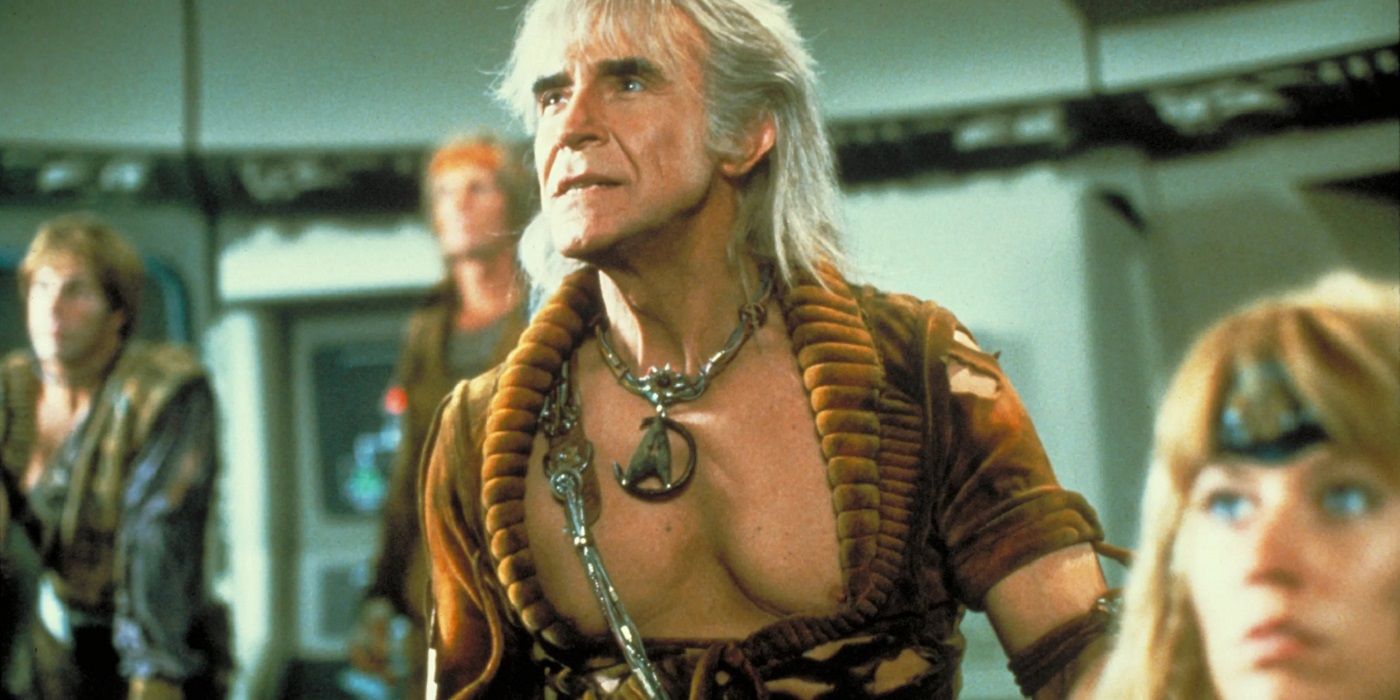One of the biggest fan critiques during the launch of the new wave of Star Trek TV shows is how it treated the Federation. Famously, franchise creator Gene Roddenberry hated the idea of conflict within the ranks of his interplanetary governing body. However, as far back as Star Trek III: The Search for Spock, storytellers considered what would happen if Starfleet was the enemy. Or, at least, if it was the antagonist.
Both Star Trek: Discovery and the first season of Picard dealt with an imperfect Starfleet that seemed to fall short of its mission. Ultimately, those shows revealed that it was just bad people in a good institution. However, in The Search for Spock, Starfleet is to blame for every tragedy in the film. If the exploration and defense agency simply trusted its most venerated captain, it's possible no one would've died. All Captain Kirk wanted to do was correct his own mistake, interring Spock's remains on the Genesis planet. The Vulcans are a private people, and it seems neither Kirk nor Starfleet were aware of their funerary traditions. In fact, Starfleet was negligent in sending the USS Grissom to study the planet alone. Kruge and his band of Klingons may have been the enemies Kirk and Co. faced, but Starfleet command was the villain of the movie.
All Starfleet Had to Do Was Allow Kirk To Search for Spock
Star Trek III begins not long after the ending of The Wrath of Khan, with Captain Kirk still gutted by the loss of his friend. Meanwhile, the Grissom, a small science vessel, went to the Genesis planet where Kirk's recently discovered son David and Lt. Saavik, a Vulcan protégé of Spock's, joined that crew. Because the Genesis device, an endeavor approved by Starfleet, caused a political problem for the Federation with the Klingons and Romulans, they tell Kirk that only the Grissom can go to the planet. Naturally, a Klingon commander is dispatched to kill that crew and take the device, a powerful weapon in the wrong hands, for the Empire. Frankly, Kirk and the Enterprise should've never been sent away.
Kirk has to steal the Enterprise to retrieve Spock's remains. The ship requires a crew of hundreds, but Scotty is able to automate most of the ship's functions. This is why a single Bird of Prey is able to wreck the Enterprise. Even dinged up from the battle with Khan, a fully-crewed Enterprise could've made short work of Kruge. Conversely, had Starfleet sent the USS Excelsior or another Constitution-class starship with the Grissom, the whole mess could've been avoided. It's worth noting that this would've also made The Search for Spock a short movie. That's one of the reasons Starfleet being so antagonistic is surprising because Roddenberry was still very involved in the franchise.
As discussed in Star Trek Movie Memories by William Shatner with Chris Kreski, producer Harve Bennet wrote the script for the film without much input from Roddenberry. It's possible that the creator's insistence that The Next Generation characters experience no interpersonal conflict came from his dissatisfaction with Starfleet's depiction in these films. However, he was likely so angry about the destruction of the original Enterprise that he overlooked Starfleet's antagonistic depiction in the movie.
Starfleet's Villainy Goes Beyond Grounding the Enterprise
As far back as Star Trek: The Original Series, Starfleet was a two-fold operation. The primary mission is, of course, to seek out new life on strange new worlds, boldly going and all that. The secondary mission, however, was to clean the chronometers of any hostile alien species threatening the Federation or her citizens. The Genesis device was an independent creation by Carol Marcus, David's mother, with Starfleet only providing limited support. Much of the information about the project was held back because the Marcuses worried that Starfleet would turn it into a weapon.
Not only that, but the explosion of Ceta Alpha VI should've caught the eye of Starfleet, who was aware that Khan's augments were on the neighboring planet. If they'd sent a ship to check up on them, perhaps Khan and company would've never detonated the device in the first place. Picard Season 1 took a lot of heat for how Starfleet reacted to the destruction of Romulus. Yet, the negligence and cowardice they showed in that crisis aren't much different from how Starfleet behaved 100 years earlier.
For Roddenberry purists, Starfleet making the wrong decision is franchise blasphemy. Yet, those charges are often levied on the newer Star Trek series. Making mistakes is human, and as Kirk once said of the Star Trek galaxy, "Everybody's human." If Starfleet behaved as Roddenberry envisioned, The Search for Spock would be even more poorly remembered by fans.



